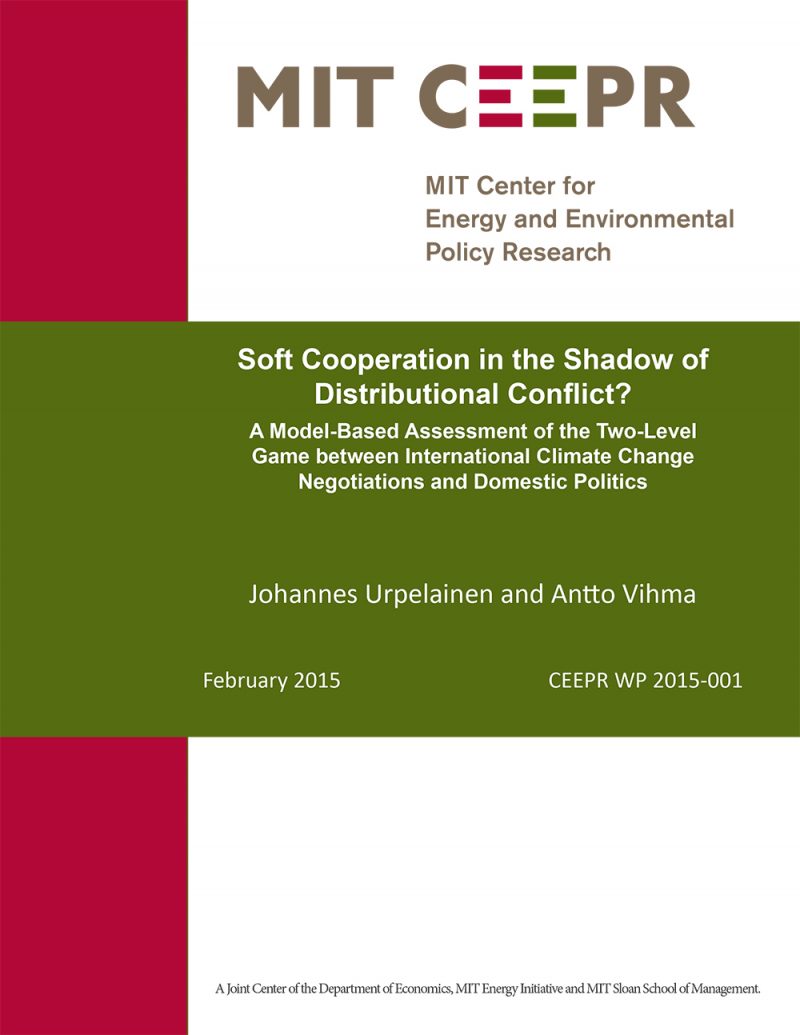Soft Cooperation in the Shadow of Distributional Conflict? A Model-Based Assessment of the Two-Level Game between International Climate Change Negotiations and Domestic Politics
Johannes Urpelainen and Antto Vihma
February 2015
In climate negotiations, negotiators frequently reject soft forms of cooperation that require no hard commitments and at best simple coordination. Why? We argue that in some cases negotiators reject these cooperative initiatives because they can thus signal their resolve to domestic audiences. If domestic audiences expect tough bargaining in the future, and therefore prefer a resolute negotiator, the incumbent negotiator may reject soft forms of cooperation to avoid losing the support of a hawkish domestic audience. In this paper, we develop a formal model to clarify the relationship between domestic politics, distributional conflict, and the choice between “soft” and “hard” cooperation. Applying this model to South Africa’s and India’s positions on transparency of domestic mitigation efforts during the 2005-2009 period provides tentative evidence for the foregoing theory. South Africa’s moderate domestic audiences allowed negotiators to compromise and even be proactive, while India pursued a conservative position. When India’s new Environment Minister, Jairam Ramesh, attempted to use transparency to increase cooperation with industrialized countries in 2009, he was faced with heavy domestic criticism. More generally, the model thus sheds light on how the shadow of a distributional conflict can prevent soft forms of cooperation.
Keywords: climate policy, game theory, international negotiations, two-level games, transparency



